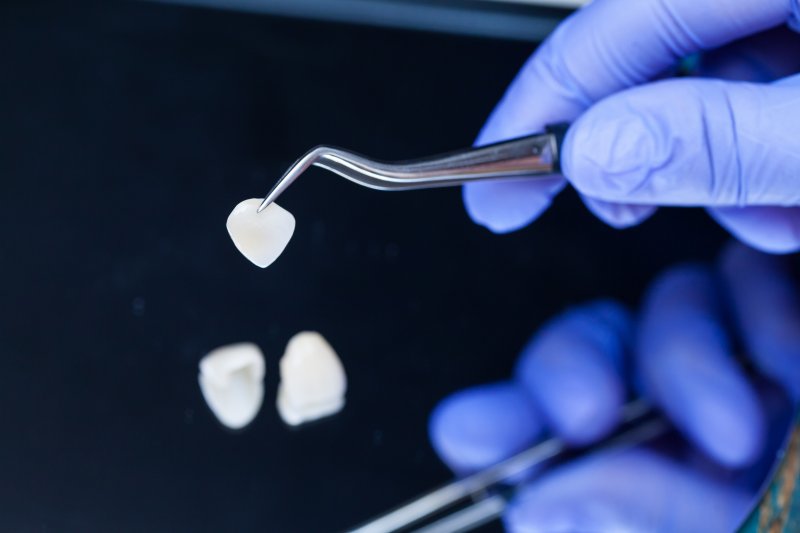
If you don’t feel happy with your appearance when you smile in the mirror, cosmetic dentistry may be able to help you feel more confident when showing off your grin. Veneers are a very popular cosmetic solution because of their ability to alter multiple aspects of your smile at the same time. However, they do require that a small amount of enamel be removed from the front surfaces of the teeth. Read on to learn how this preparatory step affects the sensitivity of the teeth.
What Does the Veneers Process Look Like?
In most cases, you can get veneers in two appointments. Once it is determined that you are a good candidate for the procedure, your teeth need to be prepped. This consists of your dentists removing about .5 mm of enamel from the front-facing surfaces of the teeth. This is necessary to make room for your veneers. Without this step, the veneers would appear bulky and unnatural. Impressions are taken of your prepared teeth, and you will be given temporary veneers to wear until your permanent restorations are ready.
A few weeks later, you can return to the dental office to have your final veneers adhered to your teeth. Final adjustments are made, and then you can show off your new and improved smile to the world!
How Do Veneers Impact Sensitivity?
Right after the procedure, many patients experience minor sensitivity as their mouth adjusts to their new restorations. This can last anywhere from a few days to a couple of weeks. Other patients don’t experience any sensitivity. Fortunately, if your smile is sore after your procedure, this is temporary. If you feel that this symptom is lasting for a long time or becoming worse, contact your cosmetic dentist so they can take a look.
If you are someone who’s prone to tooth sensitivity, veneers might actually be able to help you in the long run. Adding a veneer to the front side of your tooth gives it an added layer of protection against outside elements, making it more difficult for hot and cold temperatures to reach the nerve of your tooth.
When getting veneers, sensitivity isn’t a big concern. After the adjustment period, you shouldn’t feel much of a difference. You will be free to enjoy the benefits of your beautiful smile!
About the Author
Dr. George A. Hoop earned his Doctor of Dental Surgery degree from the Emory University School of Dentistry, graduating second in his class. He later completed a periodontal specialty residency to expand his clinical skill set. He has also completed dental implant training from the Pikos Institute, the Misch International Implant Institute, the Dawson Academy, and the Pankey Institute. To learn more about veneers or to schedule a consultation at his office in Fort Myers, visit his website or call (239) 939-7299.

